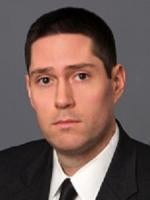On 1 April 2021, the United States Supreme Court answered the question of what type of dialing equipment qualifies as an “automatic telephone dialing system” (ATDS) under the Telephone Consumer Protection Act (TCPA), finally putting to rest years of litigation stemming from differing interpretations of the term. In Facebook, Inc. v. Duguid, the Court held that “Congress’ definition of an autodialer requires that in all cases, whether storing or producing numbers to be called, the equipment in question must use a random or sequential number generator.”1 Thus, technology that merely places calls from a preexisting database of customer numbers does not constitute an ATDS. The Court’s decision is a major victory for business entities that rely on dialer technology to reach existing customers regarding their accounts.
The Court had granted certiorari to resolve the split among the federal circuit courts of appeals that had construed the meaning of the term ATDS. In Duguid, the 9th U.S. Circuit Court of Appeals adhered to a broad definition of ATDS, but other recent courts of appeals decisions had construed the term narrowly. In its decision, the Court rejected the 9th Circuit’s reading of the TCPA and adopted a narrow interpretation.
The Court began its analysis by examining the plain language of the TCPA.2 The statute states that an ATDS is “equipment which has the capacity to store or produce telephone numbers to be called, using a random or sequential number generator; and to dial such numbers.”3 The Court noted that “[u]nder conventional rules of grammar, when there is a straightforward, parallel construction that involves all nouns or verbs in a series, a modifier at the end of the list normally applies to the entire series.”4 Applying this canon of interpretation requires “qualifying both antecedent verbs, ‘store’ and ‘produce,’ with the phrase ‘using a random or sequential number generator.’”5 Thus, the Court held that a dialer system cannot constitute an ATDS where it lacks the capacity either to (1) store telephone numbers to be called using a random or sequential number generator or (2) produce telephone numbers to be called using a random or sequential number generator.6 This holding is in accord with the rulings of the 3rd, 7th, and 11th U.S. Circuit Courts of Appeals.7 The holding rejected the 2nd, 6th, and 9th U.S. Circuit Courts of Appeals’ broad view that to constitute an ATDS, a dialing system need only have the capacity to “store numbers to be called” and “to dial such numbers automatically.”8
In rejecting a broad interpretation of ATDS, the Court noted that “Duguid’s interpretation of an autodialer would capture virtually all modern cell phones, which have the capacity to ‘store … telephone numbers to be called’ and ‘dial such numbers.’”9 “The TCPA’s liability provisions, then, could affect ordinary cell phone owners in the course of commonplace usage, such as speed dialing or sending automated text message responses.”10 That would “take a chainsaw to these nuanced problems when Congress meant to use a scalpel.”11 The Court concluded by discounting any of Duguid’s other arguments. In particular, the Court did not give credence to the notion that Congress meant to use the TCPA to “restrict nuisance calls” generally.12 The Court stated that “Duguid’s quarrel is with Congress, which did not define an autodialer as malleably as he would have liked. … This Court must interpret what Congress wrote, which is that ‘using a random or sequential number generator’ modifies both ‘store’ and ‘produce.’” Id.
The Court’s ruling will likely benefit business entities that rely on using dialing technologies to reach their customers using a database of numbers provided by the customers. At the same time, the ATDS provision, and other provisions in the TCPA that restrict the ability to place certain types of calls in certain circumstances, remain in effect and warrant careful analysis for compliance purposes.
1 Facebook, Inc. v. Duguid, No. 19–511 (2021).
2 Duguid, slip op. at 5.
3 47 U.S.C. § 227(a)(1).
4 Duguid, slip op. at 5.
5 Id.
6 Id. at 7.
7 See Gadelhak v. AT&T Servs., Inc., 950 F.3d 458, 464, 469 (7th Cir. 2020) (Coney Barrett, J.); Glasser v. Hilton Grand Vacations Co., 948 F.3d 1301, 1310 (11th Cir. 2020); Dominguez v. Yahoo, Inc., 894 F.3d 116, 119-21 (3d Cir. 2018).
8 See Allan v. Pa. Higher Educ. Assistance Agency, 968 F.3d 567, 574 (6th Cir. 2020); Duran v. La Boom Disco, Inc., 955 F.3d 279, 283-84 (2d Cir. 2020); Marks v. Crunch San Diego, LLC, 904 F.3d 1041, 1052-53 (9th Cir. 2018).
9 Duguid, slip op. at 8.
10 Id.
11 Id.
12 Id. at 12.







 />i
/>i


